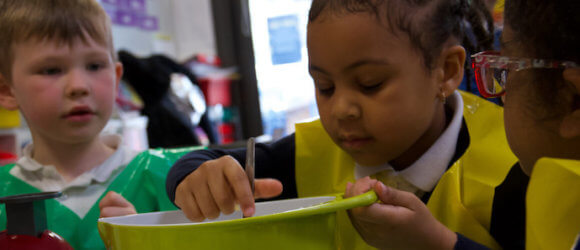Curriculum
Highfield’s Creative Arts Week Video – January 2024
What we do and why
At Highfield we want our children to be knowledgeable about the world around them and to develop the skills and values needed for them to be successful and make a positive contribution to society.
We follow The Early Years Foundation Stage Curriculum and The National Curriculum, however we have developed a bespoke curriculum that drives the aims and values of our school and serves the needs of all our children and families. Our curriculum is broad in scope, meticulous in rigour, coherent and carefully sequenced. It includes not only the formal requirements, but also an abundance of extracurricular activities and topic approaches that we carefully plan in order to enrich the children’s experiences and cultural capital. We place a strong emphasis on securing the basic skills of reading, writing and mathematics in every year group.
Children will be challenged and supported to achieve their potential. We systematically develop children’s knowledge and skills through a sequential curriculum that is relevant to our pupils. By linking knowledge and skills acquired to different areas of the curriculum, children develop a deeper understanding and learning becomes embedded.
Our planning incorporates higher-order questioning, adaptation to meet the needs of all learners and challenge for all pupils. Our curriculum is designed to be meaningful and purposeful, including practical, hands-on activities. Staff take every opportunity to promote learning beyond the classroom – outdoors in our extensive grounds and further afield on trips and excursions.
Children are encouraged to undertake their own research projects, follow their own interests and preferred learning styles through pre-learning topic homework challenges. Regular feedback from children reveals how a cross-curricular approach allows them to make connections and apply their knowledge and skills across different subjects. At Highfield, pupils are motivated and learning is fun.
Termly Topic for Years 1-6
Spring Term 2025
Curriculum Maps for Years 1-6
Long Term Map 24-25 Berry Class
Interventions
At Highfield interventions within the school day may take many forms such as;
- Pre-teaching a key concept or skill
- Reinforcing the main teaching objectives
- Developing an understanding to a greater depth
- Improving confidence and social skills
This is targeted support designed to help children reach their full potential and involve children of all abilities
Our Creative Curriculum Policy – click here to view
Homework
“Well organised homework can play a vital role in raising standards of achievement”
Please follow the link to see an overview of homework expectations for each year group.
10 THINGS TO HELP WITH HOMEWORK
10 things you can do to help your child learn
1. Give your child confidence through lots of praise and encouragement.
As a parent, you have tremendous power to strengthen your child’s confidence – and confidence is vital to learning.
Provide specific praise that focuses on a particular aspect of their work. Comments such as “I like the way you have…” is more effective than “You’re clever!”.
2. Read to, and with, your child as much as possible.
As part of the National Year of Reading the Government is encouraging parents and carers to read to children, hear them read, or encourage them to read to themselves for at least 20 minutes a day.
3. Encourage children to observe and talk about their surroundings.
Even young children can be helped to read notices and signs, for example, and understand what they mean.
4. Make use of your local library.
Look out for special events and services for children.
5. Visit museums and places you think your child might find interesting.
Children now have free admission to major national museums and art galleries.
6. If your children like watching television, watch it with them sometimes and encourage them to talk about what they have seen. They will get more out of the experience.
7. Try to set time aside to do “homework” activities with young children.
8. Wherever possible, try to provide a reasonably quiet place for children to do homework (or help them to get to other places where homework can be done).
9. Encourage your child to discuss homework with you, including feedback from teachers.
10. Try to help your child to see the enjoyable aspects of homework.









